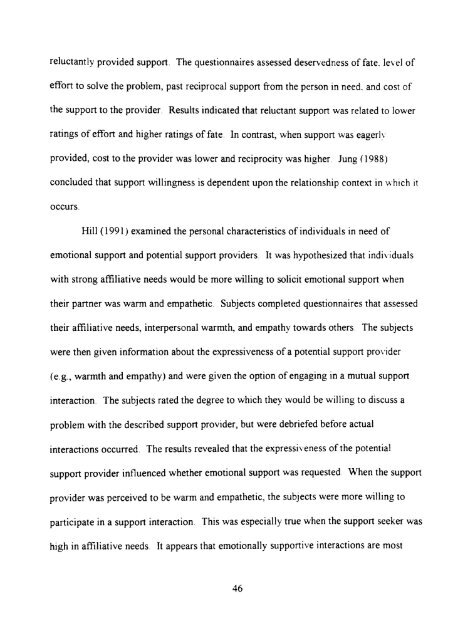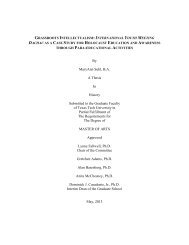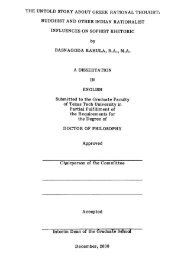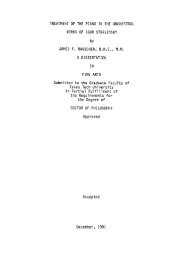THE FIVE FACTORS OF PERSONALITY AND INTERPERSONAL ...
THE FIVE FACTORS OF PERSONALITY AND INTERPERSONAL ...
THE FIVE FACTORS OF PERSONALITY AND INTERPERSONAL ...
You also want an ePaper? Increase the reach of your titles
YUMPU automatically turns print PDFs into web optimized ePapers that Google loves.
eluctantly provided support. The questionnaires assessed deservedness of fate, level of<br />
effort to solve the problem, past reciprocal support from the person in need, and cost of<br />
the support to the provider. Resuhs indicated that reluctant support was related to lower<br />
ratings of effort and higher ratings of fate In contrast, when support was eagerlv<br />
provided, cost to the provider was lower and reciprochy was higher. Jung (1988)<br />
concluded that support willingness is dependent upon the relationship context in w hich it<br />
occurs.<br />
Hill (1991) examined the personal characteristics of individuals in need of<br />
emotional support and potential support providers. It was hypothesized that individuals<br />
with strong affiliative needs would be more willing to solicit emotional support when<br />
their partner was warm and empathetic. Subjects completed questionnaires that assessed<br />
their affiliative needs, interpersonal warmth, and empathy towards others The subjects<br />
were then given information about the expressiveness of a potential support provider<br />
(e.g., warmth and empathy) and were given the option of engaging in a mutual support<br />
interaction. The subjects rated the degree to which they would be willing to discuss a<br />
problem whh the described support provider, but were debriefed before actual<br />
interactions occurred. The resuhs revealed that the expressiveness of the potential<br />
support provider influenced whether emofional support was requested When the support<br />
provider was perceived to be warm and empathetic, the subjects were more willing to<br />
participate in a support interaction This was especially true when the support seeker was<br />
high in affiliative needs. It appears that emotionally supportive interactions are most<br />
46
















